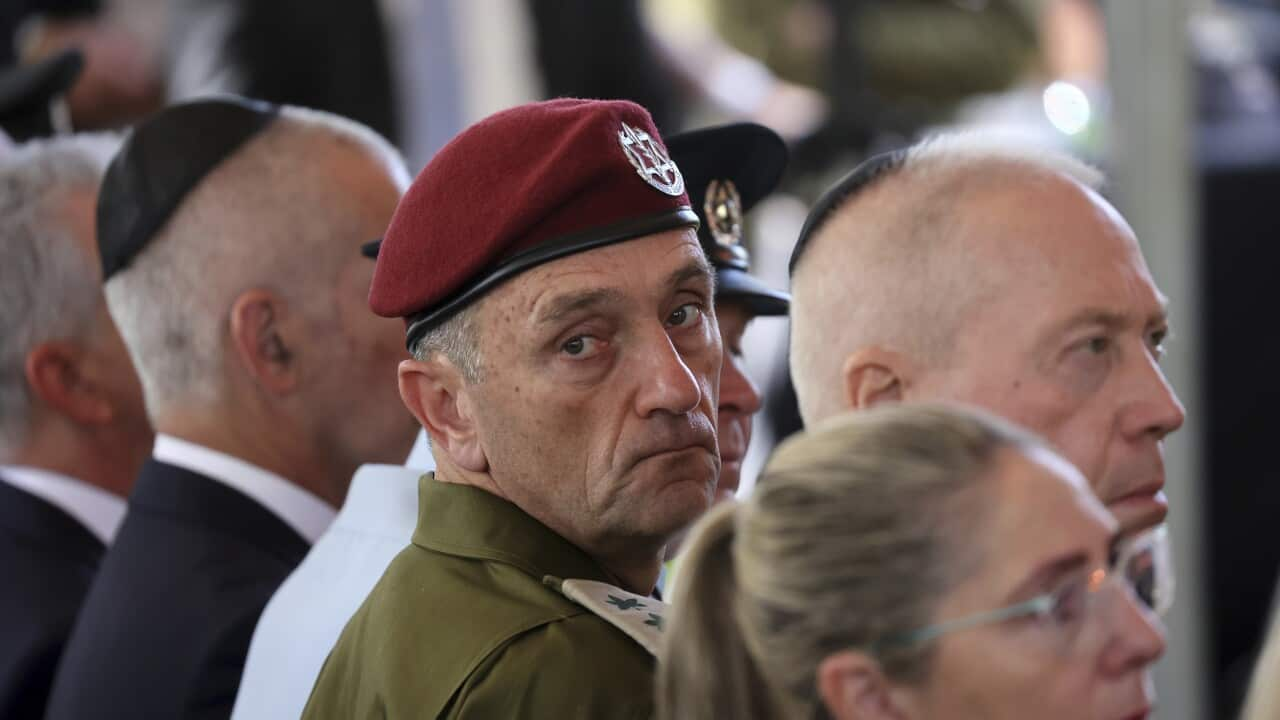TRANSCRIPT
The Israeli military has begun a military operation in Jenin, a few days after the start of a ceasefire in Gaza.
At least nine Palestinians have been killed.
Fadi Al-Saadi's brother Abdelwahab was one of those killed.
He was simply in the wrong place at the wrong time - a quick trip to get some food claiming his life.
“He told me, 'I am tired, can you get bread?' I said, I don't know if I will be able to...if I get the chance I will get it for you. Then I tried to call him to tell him 'I will the bring some bread' but there was no answer. It turns out he was dead already. He went to get bread himself from a shop nearby. It was there that he was shot by a sniper.”
Hamas, based in Gaza, has over recent years expanded its reach in the West Bank, where the Palestinian Authority, dominated by the rival Fatah faction, exercises limited governance.
The action by Israeli forces was launched a day after U-S President Donald Trump declared he was lifting sanctions on Israeli settlers who attacked Palestinian villages.
Around 700,000 Israeli settlers live among 2.7 million Palestinians in the West Bank and East Jerusalem on land Israel seized in 1967.
Some countries consider Israel's settlements on territory seized in war to be illegal but Israel disputes this, citing historical and biblical ties to the land.
The move by Donald Trump comes as Israeli army's top general, Herzi Halevi resigns over the security and intelligence failures that led to the October 7 attacks by Hamas.
Mr Netanyahu has so far rejected calls for a public inquiry into the October 7 attacks which killed almost 1200 Israelis, saying any such inquiry can only happen after the war with Hamas is completely over.
Lieutenant General Halevi says he's sorry for what has occurred since that day.
"I bear responsibility for the IDF's failure. I also have responsibility for the achievements. I wish we had not been required to achieve these achievements, and no achievement will undo the immense pain, sorrow, and loss that has been caused since the day the war began.”
Lieutenant General Halevi will officially depart on the 6th of March.
Major-General Yaron Finkelman, the head of the Israeli army's Southern Command, which oversees operations in Gaza, has also resigned.
Despite public anger over October 7, Benjamin Netanyahu's government has resisted calls to open a state inquiry into any alleged security breaches
It was not immediately clear who would replace Lieutenant General Halevi, who says he will transfer the IDF command to a yet-to-be-named successor.
Speaking to Reuters on the streets of Tel Aviv this Israeli man says the resignation is about taking responsibility.
“Maybe our prime minister should take example from the personal responsibility that the chief of staff has taken. So that's the only positive thing I can think about - just to take an example, to take responsibility. But it's not the right time to resign. We need good people to hold the army and to continue defending our borders.”
Just days after a ceasefire in Gaza came into effect, the UN's humanitarian co-ordinator for Gaza, Muhannad Hadi, says the situation there is rapidly improving.
Nearly 900 trucks worth of aid have entered since the ceasefire came into effect.
Mr Hadi says people in Gaza want to get back to normal, with a particular emphasis on getting the economy going again.
He says this has been one of his greatest days in the job.
“When I entered Gaza this morning, it felt like this is probably one of the happiest days of my professional life over a period of humanitarian journey of 35 years. I entered Gaza. It was totally different to the many times I entered Gaza in the past 10,11 months. The people I met had a different, a different attitude. It made me very happy to see that people already started moving, some of them going back to their places of origin.”
Those detained on both sides of the conflict and released under the first hostage-prisoner exchange following the ceasefire deal, have began sharing their stories.
Khalida Jaffar, a Palestinian politician and human rights advocate, was released as part of the exchange.
She was held for over a year in Israeli administrative detention, meaning she was held without charge or trial.
She describes what prison was like for her.
“I was in isolation for six months. They isolated me alone. They treat the prisoners, whether children, male, female very bad. They beat them, they use gas against us, no family visit. There is an isolation of any information from outside. Food very bad, the treatment was very bad. So it's a very difficult situation.”













